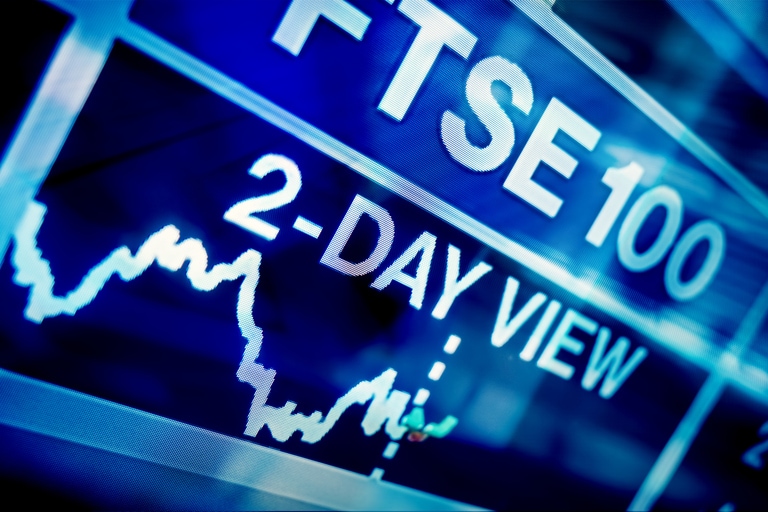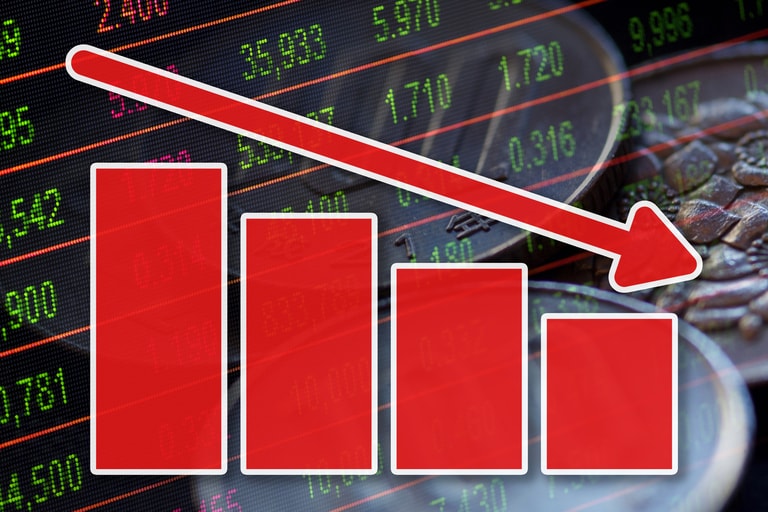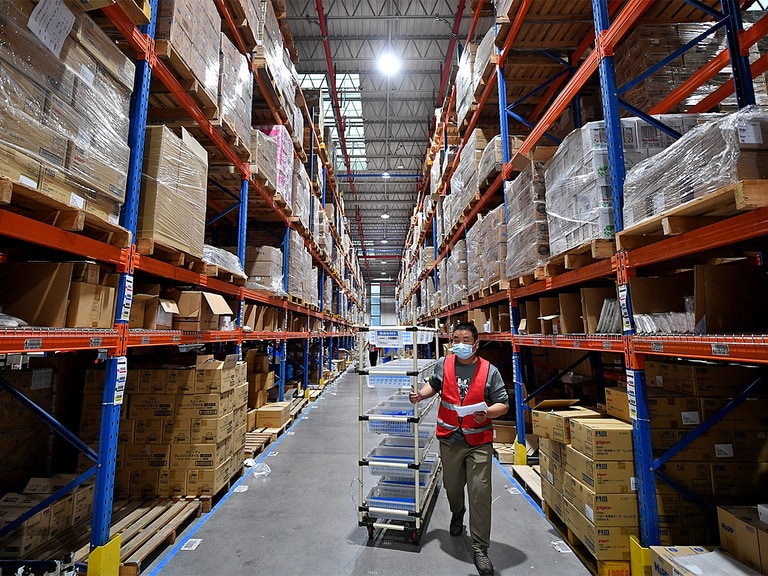It’s been a softish and subdued week for equity markets, with concerns about slowing global demand appearing to weigh on risk sentiment more broadly, although as we head into the weekend, we are seeing some modest gains on the day.
Europe
Increasing concerns over slowing demand haven’t been helped by deflation in Chinese factory gate prices for the sixth month in a row earlier this week. This has seen copper prices hit their lowest levels this year, and oil prices on course for their 4th weekly decline in succession.
We’ve not been helped by the political theatre around the US debt ceiling which has dominated the discourse in the media, and where discussions have been pushed into next week. While the risks around this are well-rehearsed it could be argued that the risks appear somewhat overstated given how regularly we’ve seen this scenario play out over the last few years on a regular “rinse and repeat” basis before a late compromise is sealed.
On the FTSE100 today, we’ve seen a modest rebound in energy, while on the trading updates front Beazley shares are higher after reporting a solid Q1 with a 12% increase in written gross premiums to £1.37bn, while claims remained in line with normal margins.
GSK shares have edged higher after the British Columbia Supreme Court dismissed a proposed class action lawsuit over the use of Ranitidine (Zantac). GSK also separately confirmed it had sold part of its stake in Haleon, selling 240m shares for the sum of £804m at 335p, reducing the remaining stake to 10.3%. This has weighed modestly on Haleon shares as investors focus on the likelihood of whether Pfizer might look to do something similar, given recent speculation that they were also looking to lower the size of their stake in the business.
There’s been an underwhelming reaction to Balfour Beatty reaffirming its full year guidance by reporting that current trading is in line with market expectations, and that profits from operations to be in line with 2022 levels. At the end of March, the order book was at £17bn, down from £17.4bn at the end of last year, with new orders added including a £297m road maintenance project in East Sussex, and a $230m design build for a data centre operation in the US Northwest.
THG shares have plunged after the health and beauty business announced that discussions with Apollo Global have terminated without agreement. THG also confirmed that profitability and cash flow improvements delivered during Q1 had continued during Q2, however investors don’t seem to care about that, as the shares gave up all of the gains that came about with the initial announcement of the talks, back in April. Not exactly what you might call a vote of confidence in current management.
US
US markets look set to end slightly higher in a week that has seen concerns about the outlook for the US economy keep stocks largely rangebound.
Tesla shares have pushed higher after Elon Musk announced he was stepping down as Twitter CEO, announcing that he has hired NBC’s Linda Yaccarino to fill the position. With Yaccarino in position the hope is Musk will be less distracted and more focussed on Tesla. This news appears to be outweighing the reports that Tesla is recalling 1.1m cars in China over a braking defect. Tesla also announced it was raising its US prices by as much as $1,000 to its more expensive models.
We’ve seen a modest rebound in regional banks after they got rinsed yesterday with PacWest Bancorp edging higher, along with Western Alliance.
Netflix shares are higher after several days of strong gains after announcing a $2.5bn investment in new Korean content across film and TV, as it looks to strengthen its non-English speaking market reach.
FX
It’s been a positive week for the US dollar, with broad gains across the board, as the slightly negative mood surprising risk has prompted a little bit of haven buying, with the Swiss franc and Japanese yen outperforming these past few days. Today’s latest University of Michigan inflation expectations numbers also gave the greenback a boost after preliminary 5–10-year inflation expectations for May, rose to a 12 year high of 3.2%. This comes across as rather counterintuitive at a time when factory gate prices are slowing sharply and tend to act as leading indicators for broader trends when it comes to inflation.
The New Zealand dollar has been sold heavily today after the latest numbers on inflation expectations fell from 3.3% in Q1 to 2.79% in Q2. With the RBNZ set to meet again in just under two weeks the sharp slide in this number could prompt the RBNZ to dial back its recent hawkish rhetoric, and could mean a change of tone, after the central bank hiked rates by more than expected, by 50bps at its most recent meeting, back at the start of April.
The euro has also had a poor week despite various numbers of the governing council at the ECB almost falling over themselves to insist several more rate hikes are on the way, the latest being Bundesbank President Joachim Nagel earlier today.
The pound is broadly flat on the day after UK Q1 GDP saw the economy grow by 0.1% with the numbers depressed by a -0.3% monthly contraction for March. The economy was held back by various public sector strike action from healthcare and transport, weighing on services which saw a contraction of -0.5%. The performance would have been worse but for a significant rebound in construction and manufacturing activity which saw a strong rebound in March.
Commodities
Crude oil prices have edged modestly higher today at what looks set to be the end of another negative week, and the 4th successive weekly decline. The weakness that we’ve seen this week along with a slide in copper to its lowest levels this year appears to be predicated on concern over the resilience of the Chinese economy. The weakness being seen in factory gate prices, as well as CPI suggests that demand is slowing sharply in China, adding to concerns about a more global slowdown. This deflationary impulse appeared to be reinforced by a bigger than expected slowing in US PPI for April as well.
Volatility.
Weak Chinese inflation data was seen as being behind the slide in copper prices to fresh lows for the year. The metal traded down to $3.70 per pound, with building warehouse inventories adding to the downside pressure. One day vol on copper stood at 29.26% against 20.93% for the month.
That downside pressure on copper was also seen as driving a sell-off for the AUD, with price action being most pronounced against the Yen. One day volatility on the cross printed 12.93% compared with 11.32% on the month, making it the most active of the fiat currency trades.
Concerns over inflation data and rising unemployment claims took a toll on Wall Street yesterday with the DOW 30 seeing some heavy selling into the open. Whilst there was something of a recovery as the day progressed, investors clearly remain rattled by the backdrop. One day vol on the index printed 15.56% against 11.61% for the month.
And finally, CMC’s proprietary basket of US listed Green Energy stocks saw elevated levels of price action on Thursday. The heaviest weighted constituent – Maxeon Solar Technologies – added almost 30% after earnings news comprehensively beat expectations. One day vol on the basket came in at 59% versus 50.39% for the month.
CMC Markets erbjuder sin tjänst som ”execution only”. Detta material (antingen uttryckt eller inte) är endast för allmän information och tar inte hänsyn till dina personliga omständigheter eller mål. Ingenting i detta material är (eller bör anses vara) finansiella, investeringar eller andra råd som beroende bör läggas på. Inget yttrande i materialet utgör en rekommendation från CMC Markets eller författaren om en viss investering, säkerhet, transaktion eller investeringsstrategi. Detta innehåll har inte skapats i enlighet med de regler som finns för oberoende investeringsrådgivning. Även om vi inte uttryckligen hindras från att handla innan vi har tillhandhållit detta innehåll försöker vi inte dra nytta av det innan det sprids.






